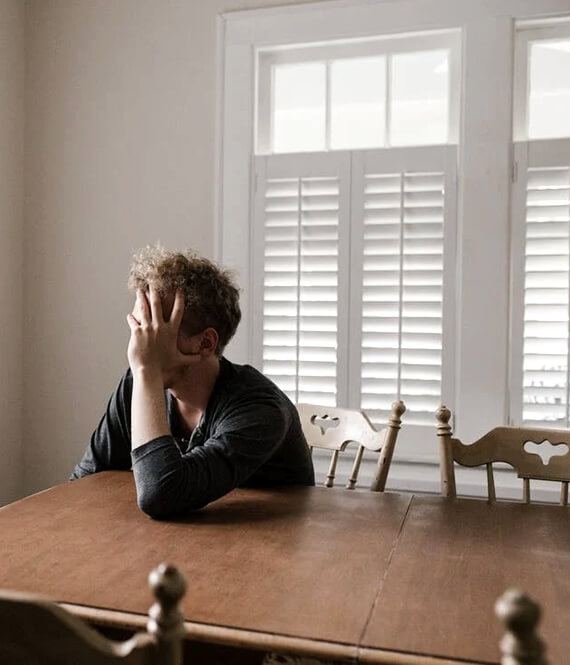
3 Ways Teens And Their Families Can Benefit From Youth Mental Health Experts
We recommend helpful products in our articles. Read our full disclosure here. The content on this website is not intended to be a substitute for professional advice, diagnosis, or treatment.
As the Centers for Disease Control and Prevention (CDC) reported, 29% of teens experience poor mental health, and 42% persistently feel hopeless and sad.
The mental health issues adolescents face were identified as among the major barriers to their personal achievement, particularly in school.
Various reasons can impact their mental health and make them more susceptible to mental health problems.
According to the World Health Organization (WHO), some of these reasons may include the following.
- Ongoing physical, social, and emotional changes;
- Exposure to poverty, violence, or abuse;
- Peer pressure;
- Social media influence;
- Bullying, discrimination, or exclusion;
- Drug or alcohol abuse.
As parents or guardians, it’s your responsibility to care for your child’s mental health the same way you do for their physical health.
The role of youth mental health experts
Adolescence is considered a crucial time of developmental transition toward adulthood.
During these years, children explore, socialize with others, take risks, set goals, and develop critical reasoning skills.
With teenagers changing and growing constantly, looking after their mental health can be challenging.
In this period of their ongoing growth and development, they may feel confused, disoriented, and anxious about the fast-paced changes they’re going through.
Thus, they may have the tendency to keep things to themselves, making it difficult to tell whether they’re experiencing mental health issues.
Several mental health resources for kids and adolescents, such as therapy and counseling, are available to help parents take a positive and more effective approach to their children’s mental health.
Continue reading to discover how teens and families can benefit from engaging with youth mental health experts.
Proper knowledge of stress management and emotional regulation
Working with youth mental health experts allows teens to learn more about stress management and emotional regulation.
These professionals provide mental health resources for kids and adolescents, such as mentoring, community-based support, and in-home or outpatient therapy.
Through these services, adolescents have access to a safe environment where they can express their emotions, identify current stressors in their lives, and learn how to manage and understand them better.
Mental health professionals are trained to be unbiased and open-minded when talking to their clients, allowing children to be more open about their struggles.
Once their issues have been identified, experts share practical tips on self-regulating and approaching their stressors during difficult times.
Their advice not only helps improve teens’ well-being but also gives families the opportunity to promote mental health.
Better identity development
Adolescents spend most of their time finding their interests, developing their values, and learning about themselves.
Without proper guidance, they may be vulnerable to negative influence from peers, social media, or even relatives who model destructive behaviors.
Mental health experts can help them build a strong sense of identity.
Attending therapy sessions allows them to learn about self-care, self-affirmation (positive talk), and self-accountability, which are essential in developing a healthy personal identity.
During counseling, their therapist may ask them how they differentiate themselves from others and embrace their individuality.
With self-confidence, adolescents can set healthy boundaries for themselves.
Effective interpersonal skills
Each child has different ways of interacting and communicating with others.
For instance, they appear needy or clingy and are easily influenced by their peers or partners.
Others can connect with others well and are independent.
Mental health experts can help adolescents develop effective interpersonal skills and a healthy relationship style.
During therapy, a mental health expert will ask them questions to learn more about their needs in relationships and understand their current relationship style.
If they find current problems or childhood issues that affected their interpersonal skills, a therapist may offer them options to address those problems.
They may also assist them in improving their listening skills.
And when adolescents deal with challenging relationships, a professional can teach them relaxation techniques like deep breathing and self-regulation methods to stay calm during confrontations.
Once children develop solid interpersonal skills, they become honest, open, and compassionate to others.
Parents can also accompany or join their children in sessions.
Family therapy aims to help family members resolve conflicts and communicate better.
During a session, a therapist will get to the bottom of the problem, asking about each family member’s views on the issue, how and when the trouble began, and how everyone has been coping so far.
Then they will come up with a treatment plan and guide family members through communicating effectively, addressing issues, and figuring out how to work together.
In particular, involving parents in therapy is a practical approach for children dealing with conduct disorders and substance abuse.
It helps in treating depression and anxiety disorders as well.
Conclusion
Working with mental health experts encourages teens and their families to build better mental health.
Remember, seeking professional help is a sign of strength, not weakness.
"We love to research problems, examine studies, analyze solutions, and share with you ideas that make life healthier. You can learn about us and our editorial standards here. Have suggestions or feedback to share? Send us a message!."













Leave a Comment